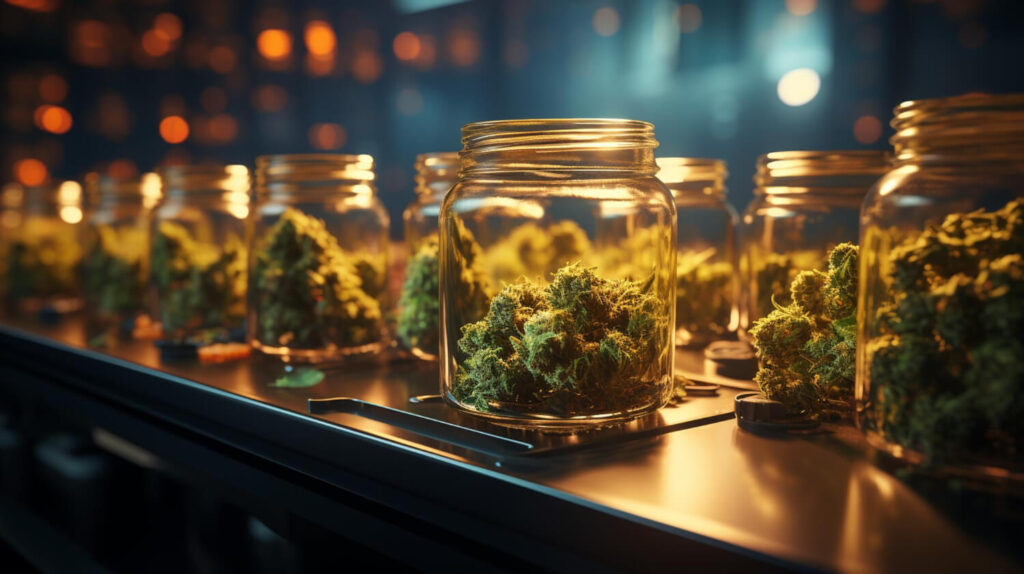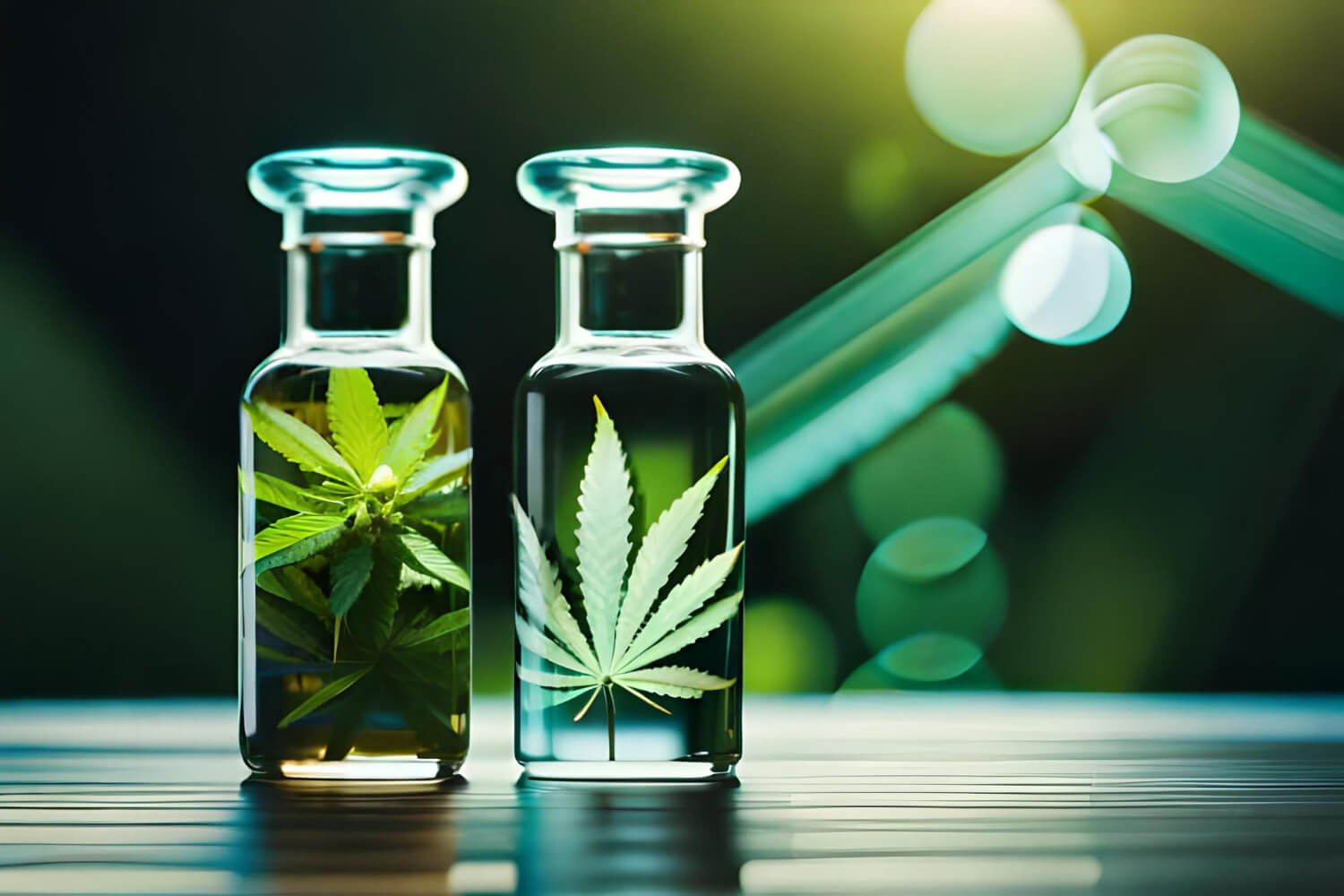Often mistaken for one another, both CBD and CBN are exciting cannabinoids derived from cannabis plants that have the potential to do a lot for our health. With several effects and benefits that overlap while each bringing something different to the table when looking to get the most from your cannabis items, it’s important to learn the nuances between CBN vs. CBD.
What are CBN and CBD?
When learning about all the various cannabinoids, it’s pretty common to compare them against each other to understand how they relate and don’t. Because CBN was often mistaken for CBD by cannabis growers until very recently, there may not be two better cannabinoids to compare.
While both CBD and CBN start their existence off as CBG, the pathways they take after are different. Where CBG can directly mature into CBD due to various physiological processes that happen while the plant is alive, CBG needs to convert to THC first before converting into CBN.
In fact, unlike the conversion from CBG to CBD or THC, we can visually see THC converting into CBN by monitoring the trichomes cannabis plants produce on their flowers. As trichomes age, they turn from clear to cloudy to amber. Clear trichomes have a much greater ratio of THC to CBN, but when THC starts degrading into CBN, closing the gap between them, the trichomes turn amber.
CBN vs CBD: The Potential Benefits
CBD
CBD is an antagonist at CB1 receptors and an agnostic at CB2 receptors, and it has a high affinity for both. This gives CBD the ability to support several regulatory and neuroprotective functions. Such as promoting the right amount of inflammation in the body or nourishing a healthy appetite. CBD is not intoxicating in any sense of the word. In fact, it can block other cannabinoids from creating a high.
CBN
CBN has low affinity on cannabinoid receptors as a partial agonist with both CB1 and CB2 receptors. Due to its activation of CB1 receptors, CBN is mildly intoxicating. CBN may have several of the same potential benefits as CBD, but they will be much less pronounced due to its weaker affinity with CB2 receptors. Where CBD can help calm the body down, CBN can actually sedate it, resulting in the classic couch-lock phenomenon. It can also increase appetite due to its activation of CB1 receptors, but don’t expect the munchies like delta-9 gives you.
CBN vs CBD: Legal Status and Availability on the Market
When it comes to cannabis plants on a federal level, despite producing 100+ different cannabinoids, only delta-9 THC is regulated under the U.S. Farm Bill, which limits cannabis-deprived products to 0.3% delta-9 THC. This means on a federal level, both CBD and CBN products are legal without restrictions on the amount they can have.
While both are legal, CBD products are much easier to find on the market. This is because no matter how much CBD you consume, you’ll never feel high — not the case for CBN. Second, CBD is more popular because of its strong affinity for CB2 receptors, which really does give it the potential to help with so many issues.
Because laws regarding cannabis are rapidly changing, I highly advise that you always stay up to date on laws in your region, which may look different from the restrictions on the federal level.

CBN vs CBD: Side Effects and Considerations
Research on both CBN and CBD has found they both produce favorable safety profiles, and there is a pretty decent amount of research that attests to their safety. Neither CBD or CBN are free of side effects, and it’s possible that CBN will be a bit more aggressive due to its activation of CB1 receptors, which affects cognition.
The biggest safety concern with all cannabinoids is their influence on CYP enzymes. Similar to THC, CBN is a potent inhibitor of CYP1A2 and CYP1B1 enzymes, while CBD inhibits CYP3A4 and CYP2D6. The majority of prescription medications are metabolized by CYP enzymes. So while cannabinoids can be consumed with prescription medications, it’s important to understand the exact enzymes that metabolize your medication to avoid inappropriate drug-drug interactions.
Consumer Considerations: Choosing Between CBN and CBD
So which is right for you: CBN or CBD?
Why You Should Choose CBD: If you have never used a cannabis item before or are looking for help with anxiety, pain, and other issues without feeling high, you will probably want to start with CBD first. Why You Should Choose CBN: However, if you’re a fan of recreational marijuana, want help with sleep, or need a mild appetite boost without feeling too high, CBD is potentially a better option.





